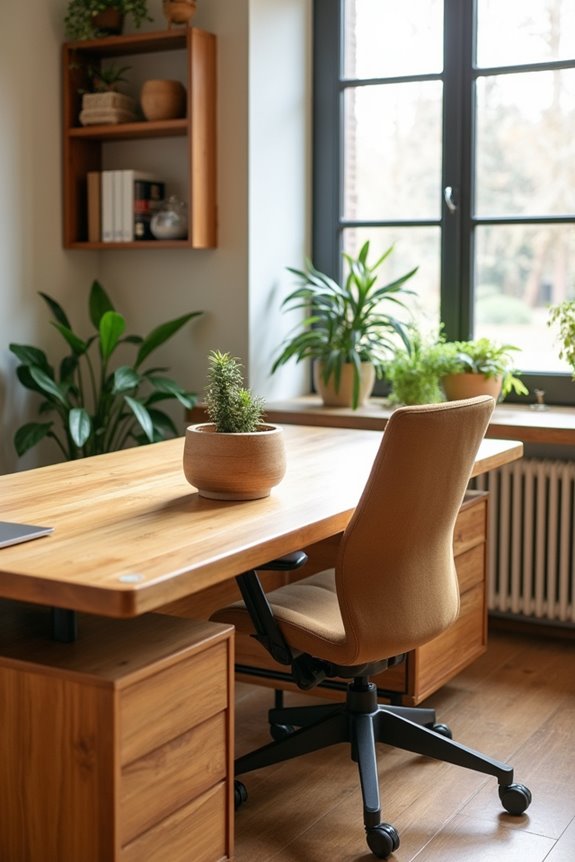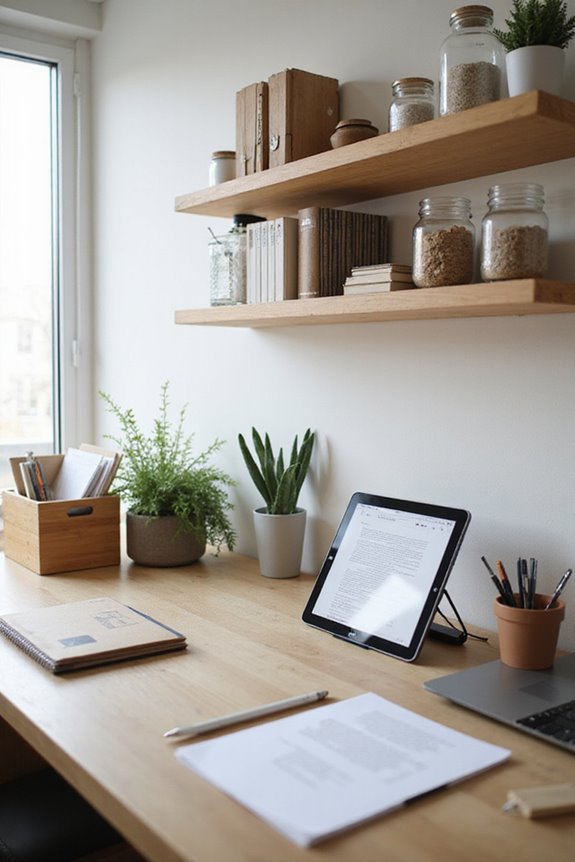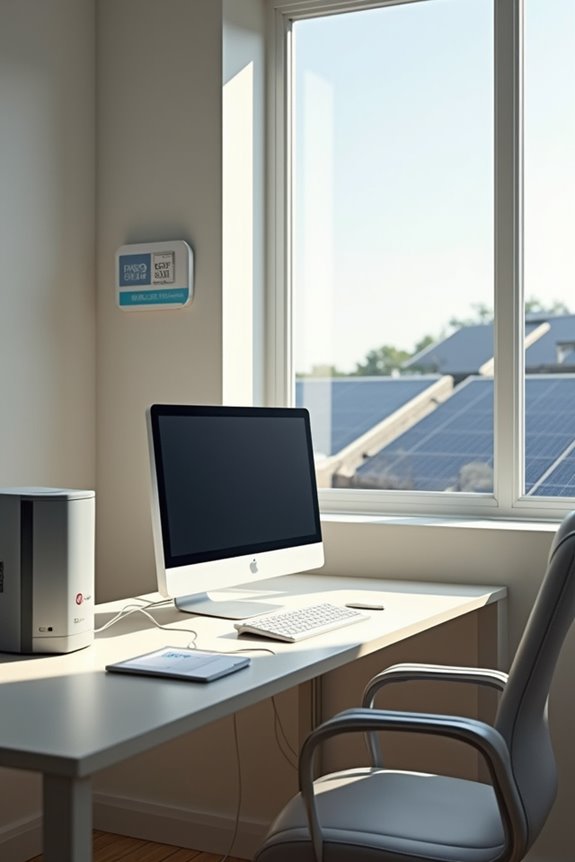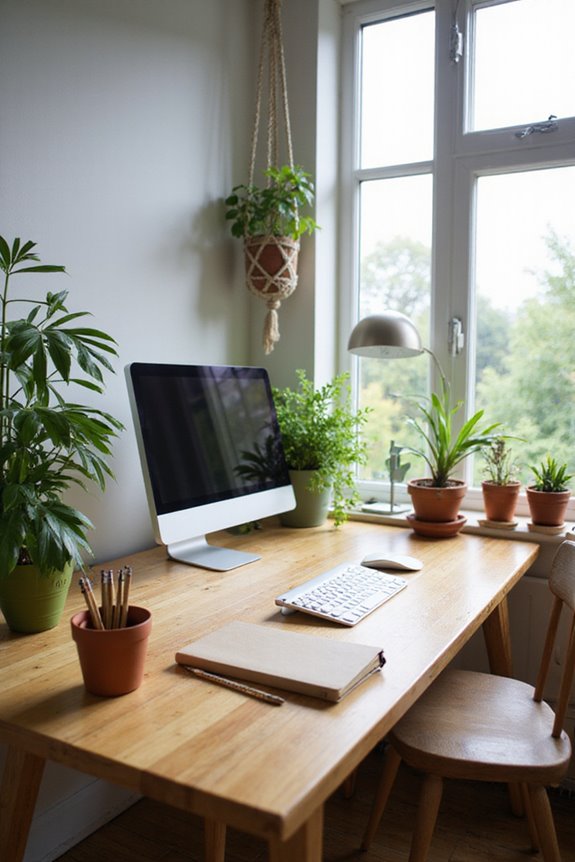When it comes to sustainable office furniture, I recommend focusing on materials like reclaimed wood, which offers unique textures and reduces landfill waste. Bamboo is another excellent option, known for its rapid growth and strength. Recycled plastics help minimize virgin resource use and can be customized for design needs. For upholstery, choose natural fabrics to enhance air quality, and consider recycled metals for durability. If you want to explore more options and their benefits, there’s plenty to uncover.
Key Takeaways
- Look for reclaimed wood, which reduces landfill waste and offers unique character and durability in office furniture.
- Consider bamboo for its rapid growth, minimal water needs, and natural resilience against moisture and pests.
- Choose furniture made from recycled plastics to conserve resources and support eco-friendly manufacturing processes.
- Opt for natural fabrics that enhance air quality, provide insulation, and are hypoallergenic for a healthier workspace.
- Select recycled metals for their durability, design flexibility, and reduced environmental impact compared to virgin resources.
Reclaimed Wood: The Unique Choice for Eco-Friendly Desks and Tables
When considering sustainable materials for office furniture, reclaimed wood stands out as a unique and practical choice. Its sourcing methods focus on repurposing timber that’s already been harvested, which helps maintain healthier forests and limits landfill waste. This aligns well with current design trends that emphasize eco-friendliness in aesthetics.
Reclaimed wood offers durability and strength, often surpassing new lumber due to its natural aging process. Each piece carries a unique character, showcasing weathered textures and original grain patterns. Whether you’re looking for robust desks or stylish tables, reclaimed wood can adapt to various office styles, from rustic to modern. By choosing this material, you’re not only enhancing your space but also supporting sustainability in the furniture industry.
Bamboo: A Fast-Growing Alternative for Durable Furniture
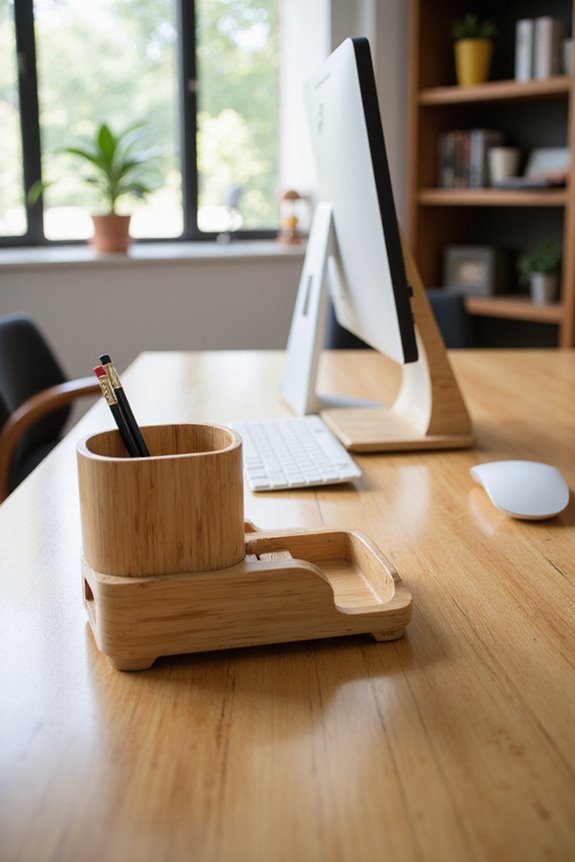
Bamboo stands out as a remarkable alternative to traditional materials in office furniture design. One of the key bamboo benefits is its rapid growth; some species can grow up to 36 inches per day and reach full size in just a few years. This quick maturity allows for sustainable sourcing without the need for replanting after harvest, thanks to its extensive root system.
Moreover, bamboo requires minimal water and no pesticides, making it an eco-friendly choice. Its natural resilience provides durability, as it’s resistant to moisture and insects. Lightweight yet strong, bamboo furniture suits various office styles while minimizing environmental impact. Choosing bamboo not only supports a sustainable future but also promotes a circular economy by being fully biodegradable.
Recycled Plastics: Reducing Waste Through Innovative Design
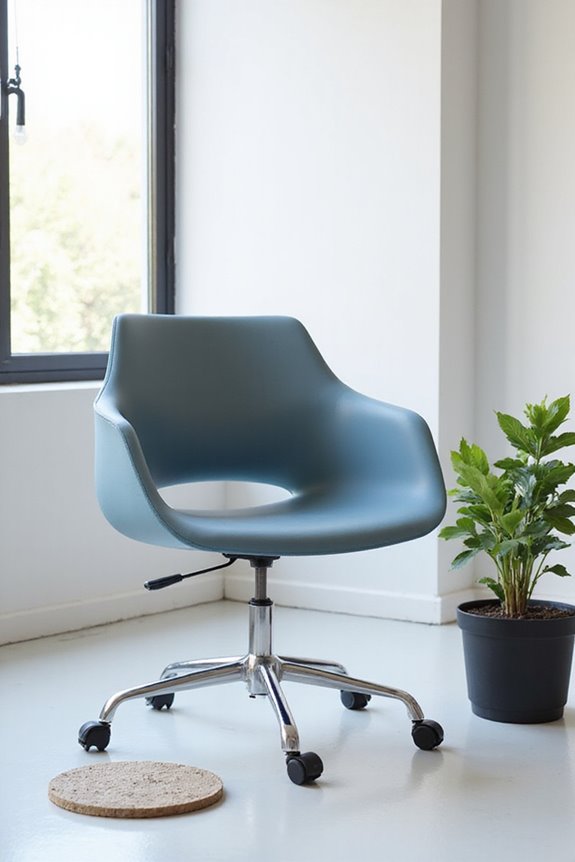
Recycled plastics offer a compelling solution for reducing waste in office furniture design, especially as we endeavor for more sustainable practices. By utilizing recycled materials, we can notably lower our reliance on virgin plastic, thereby conserving natural resources and reducing harmful emissions. Eco-friendly manufacturing processes associated with recycled plastics not only divert waste from landfills but also support a circular economy.
These materials are comparable in strength to their virgin counterparts, ensuring durability in everyday office use. Reputable suppliers guarantee consistent quality, enabling customizable designs that meet ergonomic and aesthetic needs. Ultimately, choosing furniture made from recycled plastics reflects a commitment to sustainable sourcing and responsible consumption, paving the way for a more environmentally conscious workspace.
Natural Fabrics: Creating a Healthier Work Environment
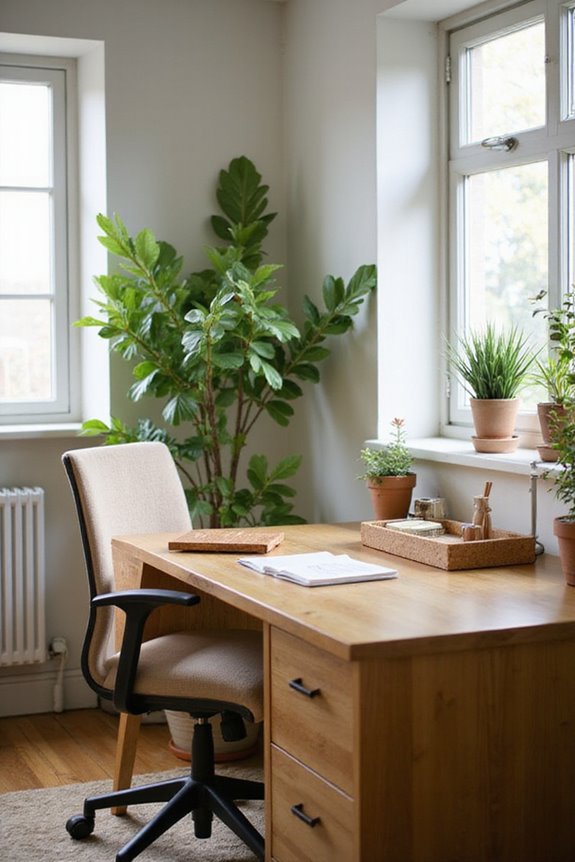
Choosing the right materials for office furniture can greatly impact both comfort and health. Natural fabrics, such as linen, bamboo, and organic cotton, offer numerous benefits. They are breathable and help manage moisture, which reduces bacterial growth and enhances air quality. Additionally, these fabrics provide hypoallergenic options, making them suitable for those with sensitivities.
Incorporating natural insulation materials, like hemp and wool, can improve energy efficiency in the workspace. Their durability means they last longer, reducing the need for replacements and minimizing waste. By choosing these natural fabrics, you’re not only enhancing the aesthetic appeal of your office but also creating a healthier work environment that promotes well-being and productivity for everyone involved.
Recycled Metals: Combining Style and Sustainability in Office Solutions
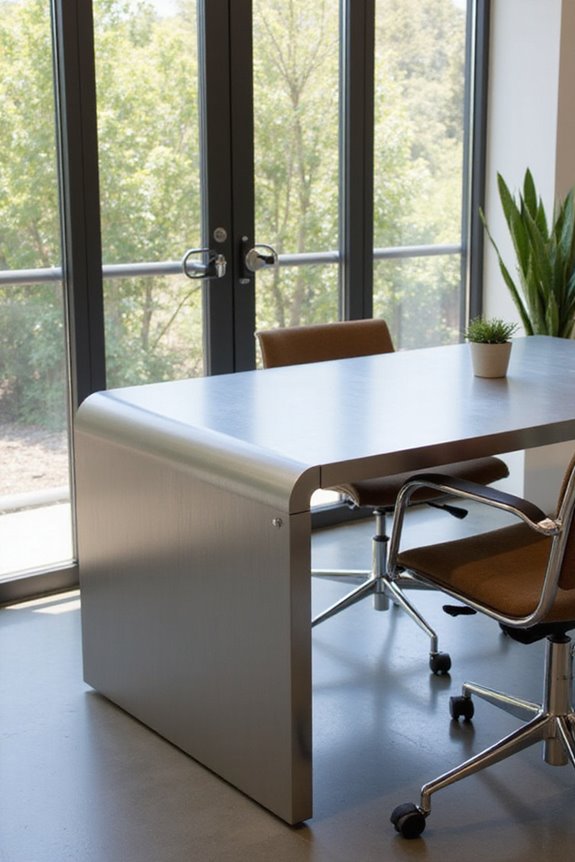
As the demand for sustainable office solutions grows, integrating recycled metals into furniture design has emerged as a compelling choice for businesses committed to reducing their environmental impact. The use of recycled metals not only supports corporate sustainability goals but also offers significant metal durability, ensuring long-lasting products.
Moreover, the design flexibility of recycled metals allows for innovative combinations with other materials like wood and glass, enhancing aesthetic appeal while remaining eco-friendly. By choosing furniture made from recycled metals, companies can reduce reliance on virgin resources, thereby minimizing their carbon footprint.
With the global recycled metals market projected to reach $130 billion by 2025, it’s clear that this trend is here to stay, benefiting both businesses and the environment.
Frequently Asked Questions
How Do I Maintain Furniture Made From Sustainable Materials?
To maintain sustainable furniture, I use gentle cleaning techniques like microfiber dusting and eco-friendly cleaners. For repair tips, I inspect regularly and use manufacturer guides, ensuring everything stays in top shape while minimizing waste.
Are Sustainable Materials More Expensive Than Traditional Options?
I know some think sustainable materials are pricier, but when I weigh the cost comparison and budget considerations, I find they often save money long-term through durability and lower maintenance, making them a smart investment.
What Certifications Should I Look for in Sustainable Office Furniture?
When considering sustainable office furniture, I always look for eco label certifications like LEED and BIFMA Level. These furniture sustainability standards guarantee products meet environmental, health, and social responsibility criteria, making my choices more informed and responsible.
How Do Sustainable Materials Impact Indoor Air Quality?
I’ve found that sustainable materials greatly improve air quality. By emphasizing sustainable design, we minimize harmful emissions and enhance indoor environments, making them healthier for everyone. It’s a win-win for us and the planet!
Can Sustainable Furniture Be Customized for Specific Office Needs?
Absolutely, sustainable furniture can be customized to fit specific office needs. I love how customization options allow for ergonomic designs that enhance comfort and productivity, making the workspace not only sustainable but also tailored to our unique requirements.

